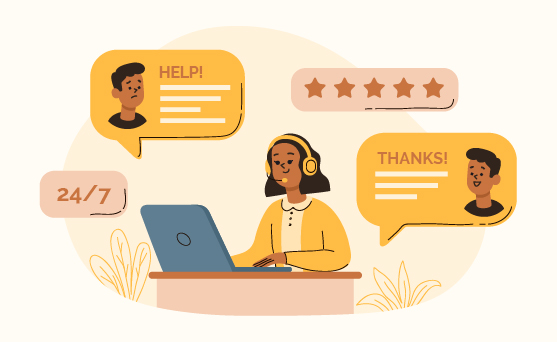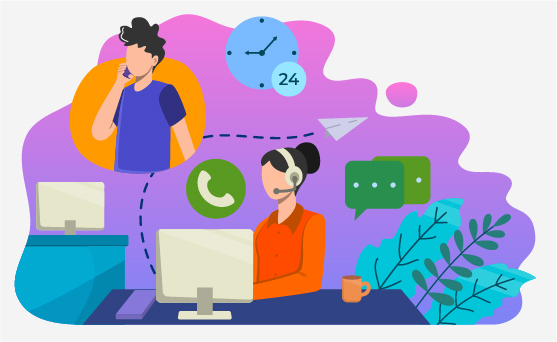Learn more about text-to-speech services with a simple example!

Over the past two decades, numerous enterprises and companies have expanded their innovative techniques and solutions through artificial intelligence (AI). One such vertical where AI is doing wonders is text recognition and conversion of text-to-speech.
According to the report released by Meticulous Research, digital voice and speech recognition technology is growing exponentially and will be worth USD 26.8 billion by 2025; it will see a compound annual growth rate of 17.2 per cent. This article gives you a comprehensive view of text to speech services.
What is text-to-speech software?
Text to speech (TTS) is an assistive technology that leverages AI to convert a human-readable text or information written in a particular language to audio, voice, or speech with a human accent or voice. Such solutions take text as input and use AI-driven algorithms to convert them to audio or voice-based output. Because they read the text aloud, such technology is often called "real aloud technology."
Modern AI-powered text to speech services also come with custom voice cloning features that will allow you to change the speech voice tonality and accents to German, American, Canadian, Indian, etc. Some well-known examples of TTS solutions are Google's cloud text-to-speech, Azure text-to-speech API, IBM Watson text-to-speech, Amazon’s Polly, etc.

Examples of text-to-speech (TTS) solutions
There are many ways businesses can leverage text to speech (TTS) online solutions in their operations. Some of the well-known use cases of integrating text to speech services in businesses are as follows:
-
TTS solutions in Word of mouth marketing: Content engagement or product sales increase when brands advertise their products or items through the voice of any reputed celebrity or brand spokesperson. In such marketing scenarios, the company creates written texts about the product and uses such text to speech services to increase brand visibility and customer traction of a particular product. Such an approach helps companies carry out a word-of-mouth marketing campaign.
-
TTS solutions in call centres and customer service centres: With the advancement in voice recognition and text-to-voice conversion techniques, it becomes easy to create texts and convert them to pre-recorded voices for interactive voice response calls. Modern TTS technology comes with a human-like voice that makes natural human conversations on IVR calls.
-
TTS solutions in education: Schools, universities, tutoring classes and other institutes can leverage text-to-speech solutions to convert texts to voice or automated reading audio so that students can learn by listening. Most audiobooks are created through text-to-speech software, and similar technology can be used by institutes. Students with visual impairment and learning disabilities like dyslexia can use text-to-speech solutions to convert textbook notes to audio and learn.
-
TTS solutions to get better localization: Modern text-to-speech solutions come with multilingual and natural voice delivery support. It helps organisations target and connect with native-speaking customers or audiences staying in remote areas. Text to speech services can help brands reach local customers by converting international or foreign advertisements from texts to audio in the local language.
Why are these solutions called text-to-speech?
These apps or programs are called text-to-speech because they convert readable digital texts to artificial speech using human-like voices. TTS solution providers make it easy for organisations to convert written texts to audio data by leveraging AI-powered algorithms.
This solution can be integrated into a variety of use cases, from websites to apps to textbooks. Considering the advantages of TTS technology and how simple they make information retention, most businesses are integrating text-to-speech in one form or another.
If you are looking for a robust TTS solution provider, Knowlarity is one rapidly growing business. Knowlarity provides TTS solutions with integrated pitch control, high voice quality and multilingual and multi-accent support so you can convert any digital text to voice/speech and enhance IVR options.
Written By: Manna Khare

